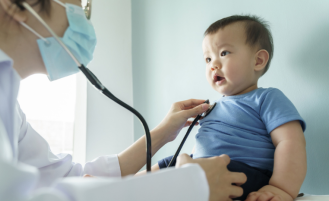Ovarian Cancer Awareness: Top 5 Things Women Need to Know from a Gynecologic Oncologist

This September, in recognition of Ovarian Cancer Awareness Month, we’re highlighting the vital role of early screening in women’s reproductive health. Catching gynecologic cancers early can make all the difference, significantly improving the chances of a cure. Gynecologic oncologist Emily Wu, MD, MPH, shares the key risk factors, subtle symptoms, and essential screening guidelines every woman should know.
When should you get screened?
Regular well-woman visits are essential for anyone with female reproductive organs. These visits help identify potential health risks early, including the need for cancer screening and prevention strategies.
What are the risk factors for ovarian cancer?
There are groups of women who are predicted to be at a high risk of ovarian cancer. However, in most cases, the exact cause of the cancer is not known, making it hard to predict who will develop the disease. Below are some risk factors, but it’s important to remember that having these risk factors doesn’t mean you will get ovarian cancer, and not having them doesn’t guarantee you won’t.
- BRCA1 or BRCA2 gene mutations, Lynch syndrome, or mutation in one of the other genes linked to an inherited increased risk of ovarian cancer.
- A family history of breast or ovarian cancer.
- Obesity.
- Endometriosis.
- Increasing age.
- Later age of pregnancy and childbirth.
What are the symptoms of ovarian cancer?
Ovarian cancer can often cause symptoms found in other common conditions or may not have any symptoms, particularly in its earliest stages. Key symptoms include:
- Bloating.
- Abdominal and/or pelvic pain.
- Changes in bowel habits.
- Frequent urination.
- Back pain.
- Fatigue.
- Unexpected changes in weight.
- Feeling full quickly.
If these symptoms persist, see your doctor. A visit would typically involve a face-to-face discussion regarding your concerns, a physical exam that may include a pelvic exam, and possibly lab or imaging studies.
Why see a gynecologic oncologist?
If you’re concerned about or diagnosed with a gynecologic cancer, it’s crucial to see a gynecologic oncologist. Overlake’s specialists, in collaboration with the Fred Hutchinson Cancer Center, are experts in creating personalized treatment plans tailored to your health, cancer type and lifestyle. Many complex procedures are done with robotic-assisted, minimally-invasive surgery, which helps you recover faster with fewer side effects.
Why choose Overlake for your care?
Overlake's gynecologic oncology team is nationally recognized for their superior clinical outcomes. The Overlake Cancer Center offers a holistic, patient-centered approach, providing access to innovative treatments, nurse navigation and clinical trials—all in our state-of-the-art facility.
At the Overlake Cancer Center, all the expert care you need is under one roof. Our renowned gynecologic oncology treatment team is on your side, ready to provide patient-centered, compassionate care. For more information or to schedule an appointment, call 425.635.3400.









